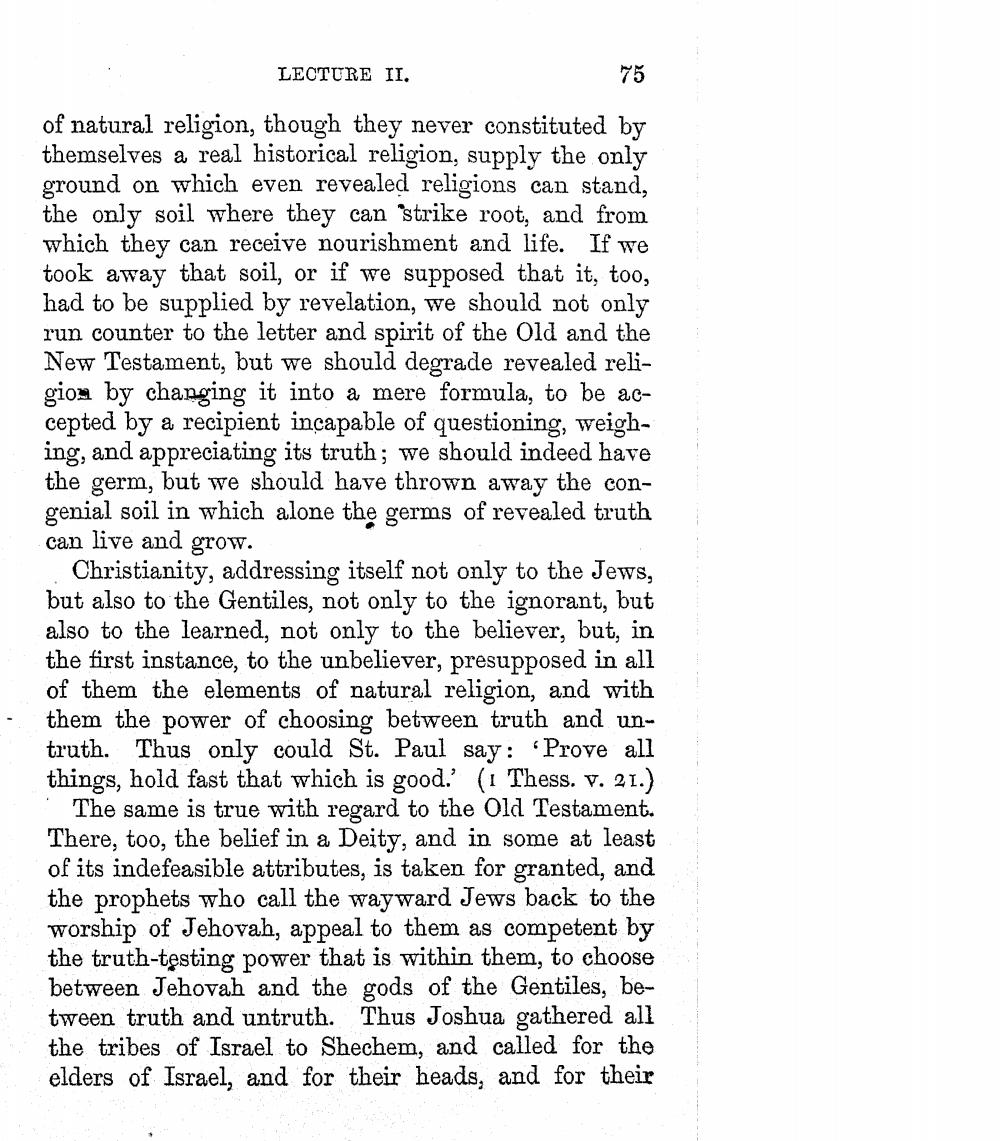________________
75
of natural religion, though they never constituted by themselves a real historical religion, supply the only ground on which even revealed religions can stand, the only soil where they can strike root, and from which they can receive nourishment and life. If we took away that soil, or if we supposed that it, too, had to be supplied by revelation, we should not only run counter to the letter and spirit of the Old and the New Testament, but we should degrade revealed religion by changing it into a mere formula, to be accepted by a recipient incapable of questioning, weighing, and appreciating its truth; we should indeed have the germ, but we should have thrown away the congenial soil in which alone the germs of revealed truth can live and grow.
LECTURE II.
Christianity, addressing itself not only to the Jews, but also to the Gentiles, not only to the ignorant, but also to the learned, not only to the believer, but, in the first instance, to the unbeliever, presupposed in all of them the elements of natural religion, and with them the power of choosing between truth and untruth. Thus only could St. Paul say: 'Prove all things, hold fast that which is good.' (1 Thess. v. 21.)
The same is true with regard to the Old Testament. There, too, the belief in a Deity, and in some at least of its indefeasible attributes, is taken for granted, and the prophets who call the wayward Jews back to the worship of Jehovah, appeal to them as competent by the truth-testing power that is within them, to choose between Jehovah and the gods of the Gentiles, between truth and untruth. Thus Joshua gathered all the tribes of Israel to Shechem, and called for the elders of Israel, and for their heads, and for their




